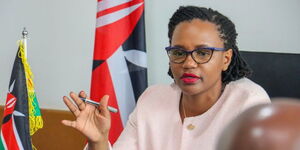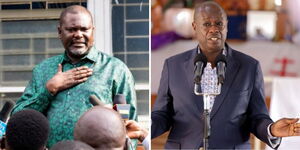President Uhuru Kenyatta’s directive on having a thorough audit in the public service has elicited mixed reactions among elected leaders with ODM party leader Raila Odinga offering to undergo the process.
Mr Odinga, who on Monday addressed his ODM party members during a retreat at the coast, stated the lifestyle audit was good for the country, urging the party machinery to back the Head of State’s initiative.
“What is good for Kenyans, is good for ODM. Lifestyle audit on leaders is good for the country. We are in it fully. Personally, I am ready for it.” Mr. Odinga told elected leaders in Mombasa.

Experts have, however, argued that technically, Mr. Odinga cannot be easily subjected to a lifestyle audit. In the opposition outfit NASA, only Ford Kenya’s Moses Wetangula can be taken through the audit.
By virtue of being the only elected NASA principal, Wetangula falls under those falling under the president’s audit directive.
The former Prime Minister may only be audited for the period he served in public office and has to be a check on his wealth declaration at the time.
Wiper Party’s Kalonzo Musyoka and ANC’s Musalia Mudavadi can also be audited at the moment only if there is a court order to guide the terms of the audit.
According to lawyer Steve Ogola, the law has a clear and predictable pathway for public service audits. The Anti-Corruption and Economic Crimes Act states that there has to be reasonable suspicion that for instance, Mr. Odinga has accumulated wealth through lost public funds in order to face the audit.
“The law on audit targets containing public sector corruption among public servants and state officers. Is Raila a constitutional office holder? He is a private citizen in public space. There can be no extension on the law to cover private citizens,” explains Ogola.
[caption caption="President Uhuru with Raila Odinga "] [/caption]
[/caption]
He further observes: “The audit cannot be extended to people who are not public or state officers unless there is reason to believe that the lost public money can be related to the person. Before one extends it to private citizens, there must be a court order by expressing fear that a public officer must have diverted the lost resources to a relative or friend who is a private citizen.”.












